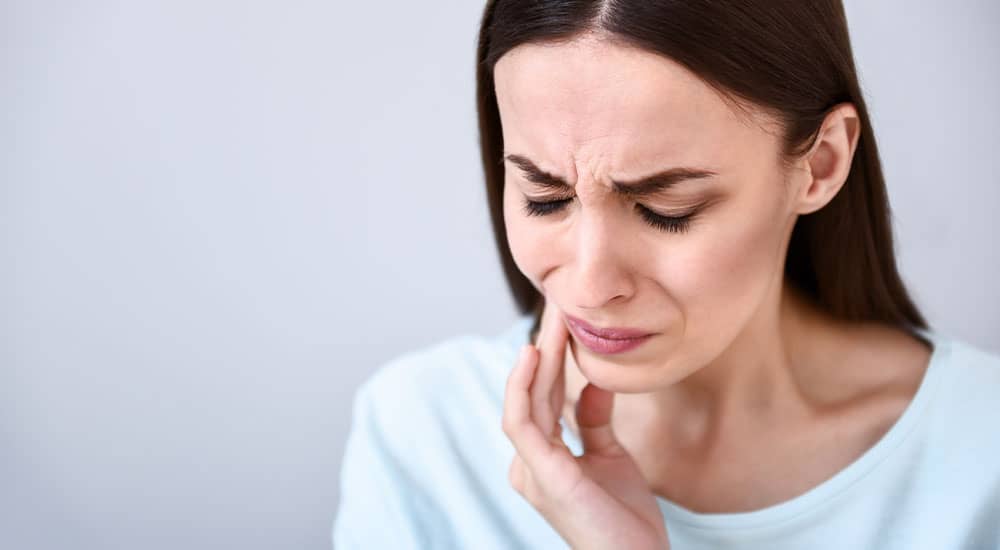Cracking at the corners of the mouth is an irritating problem seen frequently by both dentists and dermatologists.
This condition is referred to by many names, the most common of which is angular cheilitis. Not surprisingly, angular cheilitis seems similar to many other mouth illnesses, which can lead to improper diagnosis and incorrect treatments. Ulcers, cold sores, hand, foot & mouth disease, HIV lesions, cancers and ‘school sores’ just to name a few—all look very similar but are very different in nature and contagiousness.
What is angular chelitis?
‘Chelitis’, meaning inflammation of the lip and ‘angular’ referring to the corner or angle of the lip; this term is the literal definition of the condition. While there are many names for it, they all describe the same thing and that is sensitive sores at one or both corners of your mouth. Normally these cracks on the side of your mouth will start off as a minor discomfort (that sometimes mimics chapped lips), however the discomfort will generally increase and the corners of your mouth will become dry, chapped, and eventually will have red lesions. It is not uncommon for one or both corners of a person’s mouth to begin to crack and split.
Once the mouth corners become cracked, the stage is set for infection due to accumulation of saliva and contamination from food and other sources. The most widespread infective agent is yeast known as candida albicans—the same microorganism responsible for ‘thrush’. Sometimes the lesions are infected with bacteria (usually staphylococcus aureus) or it can be a combination of the two.
What causes Angular chelitis?
It can affect anyone at any age; however it is most commonly seen in young children, the elderly and the immune-suppressed. Children and younger adults tend to recover faster than the other groups but it is often present in children who drool throughout their sleep, have orthodontic braces, are sick or under a lot of stress.
Angular chelitis is far more common and complex in the elderly group. Reduced facial height and support is common in older people caused by edentulism (without teeth) or wearing dentures that are worn down. This results in over-closure of the mouth which extends the angular skin folds at the corners of the mouth – creating an irritating skin crease. The tendency of saliva to pool in these areas is increased, which causes tissue inflammation and favours the development of a yeast infection. The elderly also tend to have weaker immune systems and are prone to cracks in corner of the mouth from vitamin deficiency.
We also see more angular chelitis in the winter with colder climate and drier air. Basically, anything within the mouth that impacts regular and healthful saliva flow at the corner of the lips and/or interferes with our immune system could lead to angular chelitis. Consequently it is associated with over-closure of the mouth, dehydration, dry mouth, a lip-licking habit, drooling, immunosuppression and nutritional deficiencies.
Systemic ailments like iron-deficiency anaemia, vitamin B deficiency, diabetes and cancer can also lead to changes in the integrity of the oral mucous membranes. These circumstances can predispose individuals to yeast and other secondary infections.
Is angular chelitis contagious?
Angular chelitis is not contagious. Also, since angular cheilitis only affects the corners of your mouth, it does not spread to other parts of your body. However, it can spread to the other side of your mouth fairly easily. Because of this it’s important to try to not touch both corners of your mouth with the same finger, chapstick, or lipstick tube.
Angular chelitis treatment
If the sore in the corner of your mouth wont heal, there are several remedies are available for Angular chelitis. Antifungal ointments can be applied liberally to the corners of the mouth several times a day to discourage infection. A zinc-oxide paste or ointment (like Sudocrem) is another option. If more intensive medication is required, your dentist can provide a script for the specific anti-microbial agent required.
Denture wearers should be sure to remove and clean their dentures every night before retiring. Chlorhexidine rinses with anti-fungal properties are useful as both as mouthwash and a denture cleaner.
Overall, cracked corners of mouth treatment varies based on the exact causes of the condition in each case. That’s why at Bite Dental we take the time to check not only your teeth, but your lips and the tissues around the mouth too to ensure any lesions are attended to early. At Bite Dental we’re good at reading your lips!
Related Post: working-from-home-and-grazing-all-day-heres-how-to-stop


